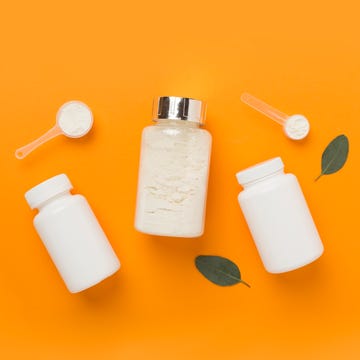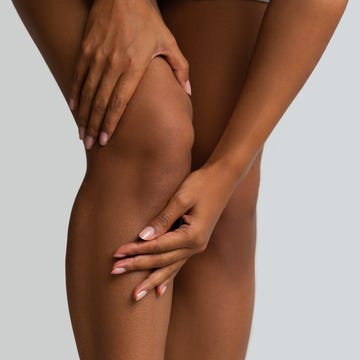It’s the perennial debate. More divisive than ‘Beatles vs Stones’ or even the hotly contested ‘cats vs dogs’. Which is better: baths or showers?
Personally, I’m firmly in the bath camp. There is nowhere on God’s green earth better than a bath tub. With some bubbles. And a book. Possibly a glass of wine. Definitely a lock on the bathroom door. Bliss.
My husband, on the other hand, remains stubbornly in team shower. So who’s right? Which is the surer bet to leave you squeaky clean and feeling serene? I turned to Primrose Freestone, microbiologist at the University of Leicester, to find out.
What to read next
Showers
‘In my opinion, showers are definitely more hygienic,’ says Primrose. ‘In the bath, you’re cleaning your skin, but the sweat, dirt and bacteria from your skin and bottom that has been washed off is now suspended in the water around you and, while more diluted, will still coat your body when you leave the bath.’ Drat.
Showers, on the other hand, involve a constant stream of water: ‘that’s more effective at cleaning your skin as there’ll be less depositing the bacteria, sweat and dirt that was on one patch of skin on to the rest of the body.’
Cold showers can also be good for your immune system. A study in the Netherlands found that people who switched to cold showers called in sick from work 29% less frequently. They may also improve symptoms of depression by stimulating your nervous system and promoting endorphins. Research into this is limited but in one clinical study, taking daily cold showers for several months was associated with decreased reports of depression symptoms.
Plus, she points out, a short shower uses less water and so is likely to be more environmentally friendly.
Baths
So showers win on hygiene grounds. But what about other health issues? ‘Baths involve suspending a body in warm water and so are more relaxing and positive mood inducing than showers,’ says Primrose. ‘Also, there are other benefits to baths, as the warm water also helps reduce joint swelling and loosens tight muscles. And the water’s buoyancy takes weight off painful joints.’ A 2021 study involving participants with musculoskeletal disorders such as rheumatoid arthritis found that 83.2% reported a significant therapeutic effect from regularly sliding into a nice hot bath.
A soak can also be good for your heart. Studies suggest that so called ‘passive heating’, (wallowing in a hot bath or taking a sauna) can reduce the risk of cardiovascular disease. In fact, a 2021 study from the University of Coventry found hot baths have some health benefits in common with aerobic exercise – raising your core body temperature, improving your blood flow and thus lowering blood pressure, control blood sugar and reduce inflammation.
Baths are pretty great for your mental health, too. A cross-sectional study published in 2018 found that participants who took immersion baths in warm water each day experienced less fatigue, stress and depression.
A middle ground
Either a shower or a bath will help you sleep well, if it’s warm and taken an hour or two before bedtime. In fact, a cold bath can also claim the same benefits as a chilly shower. So is there a compromise to be reached? Primrose suggests there might be: ‘If you want to have a bath, shower afterwards (drain off the bath, fit a shower to the taps and hose yourself down), or include a dash of gentle antiseptic such as Dettol in the bath water – properly diluted, of course. I love the smell.’













